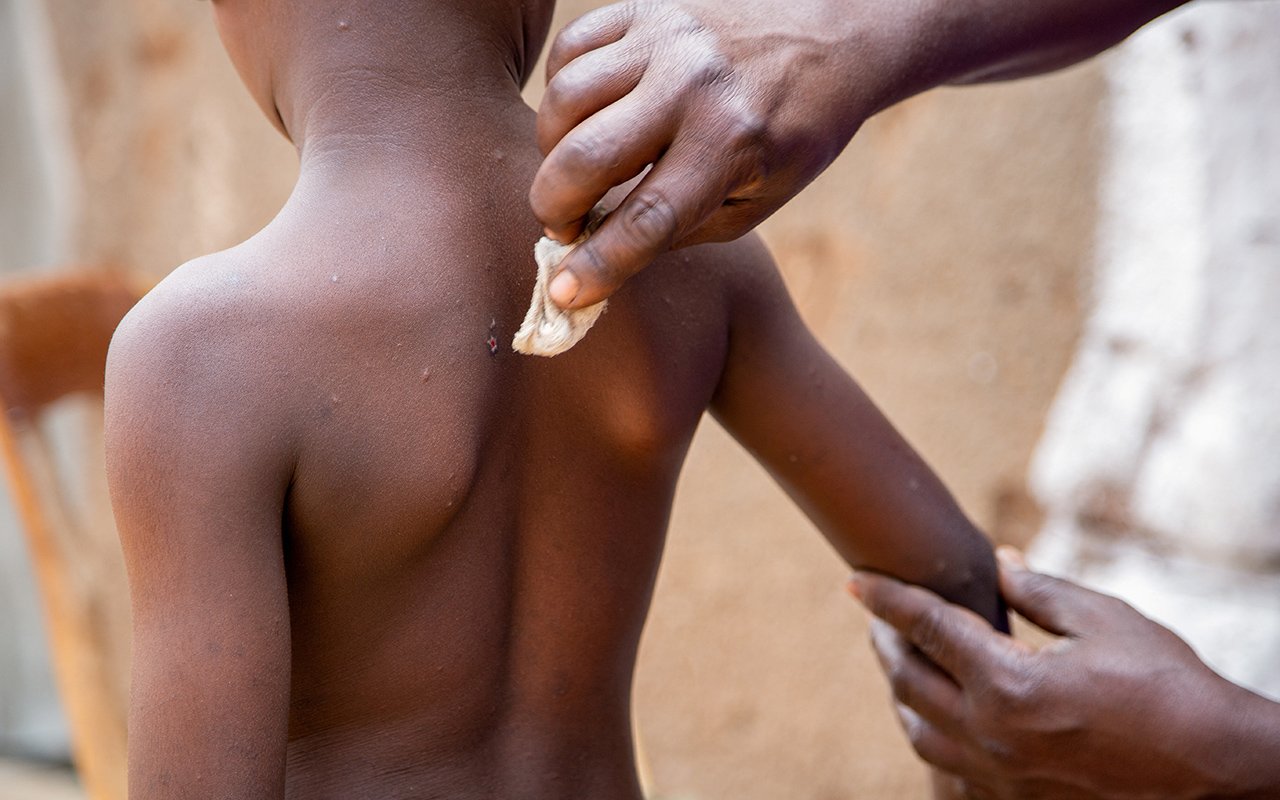
A man shows the marks on the skin of his six-year-old son after he recovered from mpox in Bujumbura, Burundi on August 28, 2024. PHOTO/ REUTERS
The Ministry of Education and Sports, in partnership with the Ministry of Health, has issued new guidelines to prevent, detect, and control Mpox within schools across Uganda.
This directive, aimed at all school heads and local governments, is essential to safeguarding the 15 million learners enrolled in the country’s 73,000 educational institutions.
In a September 27 circular, the Permanent Secretary of the Ministry of Education, Dr Kedrace Turyagyenda, highlighted the heightened risk of Mpox transmission in schools due to crowding.
"As schools re-open for the third term, the Ministry of Education and Sports, alongside the Ministry of Health, Unicef, and WHO, has developed guidelines to prevent, detect, and control Mpox in school settings. These measures will protect learners and staff while minimising disruptions to school activities,” Dr Turyagyenda stated.
She emphasised the need to protect learners across all educational levels, including the two million in pre-primary institutions, 10.7 million in primary schools, two million in secondary institutions, and one million in post-secondary institutions.
To curb the spread of Mpox, headteachers have been instructed to regularly clean and disinfect surfaces, provide access to soap and water, ensure hand sanitisers are available, and discourage the sharing of personal items such as bedding, clothing, towels, and eating utensils.
Schools are also urged to encourage learners and staff with Mpox symptoms, such as unexplained rashes, fever, and swollen glands, to stay home and seek medical care. Additionally, schools should designate isolation areas to assess potentially sick individuals.
Mpox typically presents with a new, unexplained rash that may develop into painful sores. Other symptoms include fever, chills, sore throat, swollen glands, muscle aches, and general body weakness.
The State Minister for Higher Education, Dr John Chrysestom Muyingo, expressed confidence that the term would proceed without disruption.
“The Ministry of Health assured the Cabinet that if any Mpox case is reported in an educational institution, it is fully prepared to manage it. I assure parents and the public that our learners are safe and will complete the term,” he said. As of yesterday, the Ministry of Health reported 41 Mpox cases in the country.


